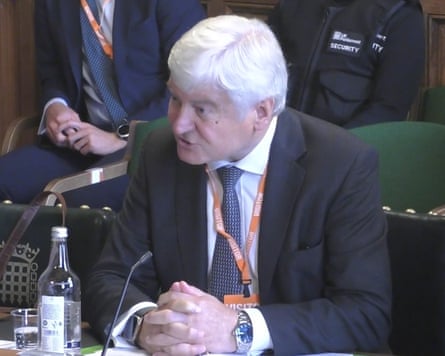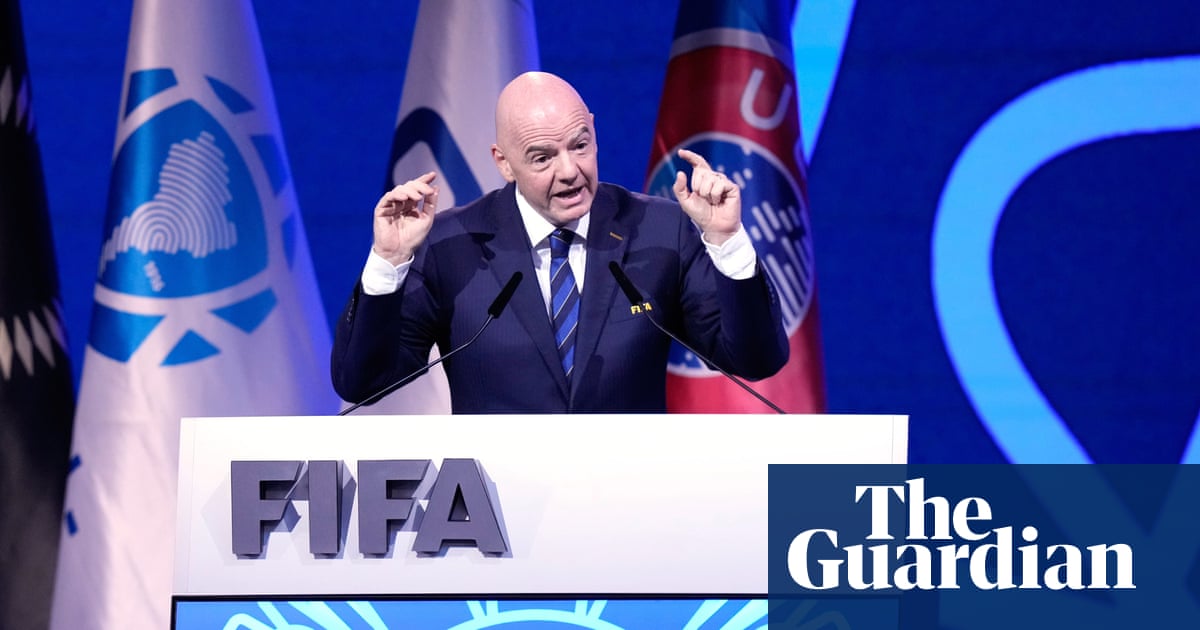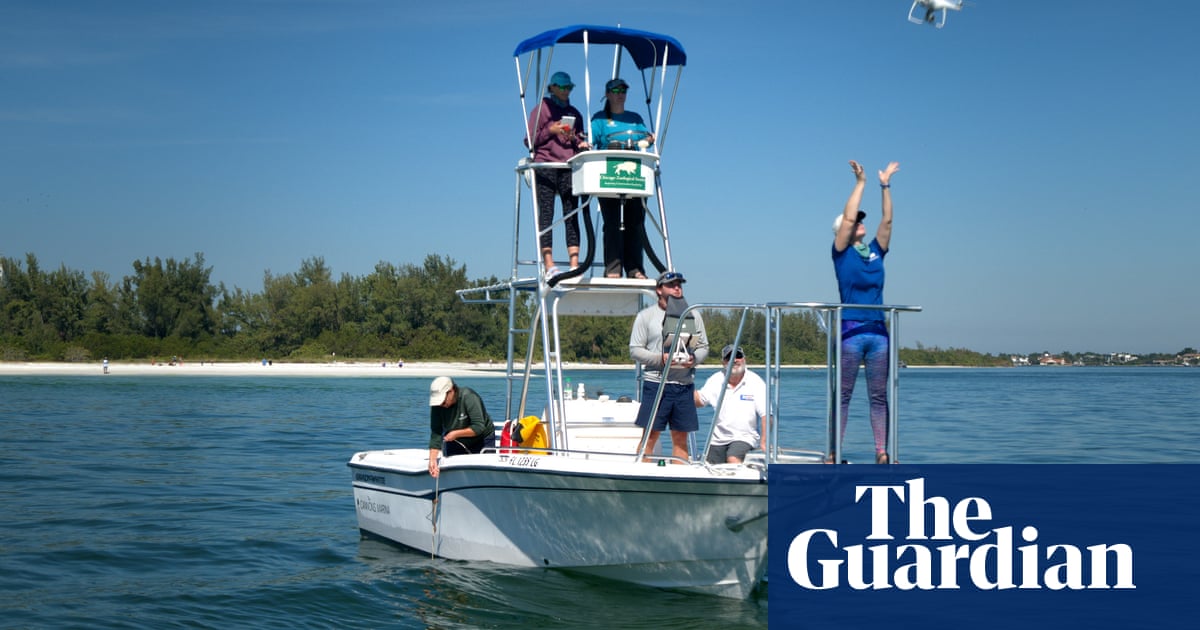Ministers plan to use new powers to block bosses from Thames Water taking bonuses worth hundreds of thousands of pounds as the company fights for survival, the Guardian can reveal.
Britain’s biggest water company admitted this week that senior managers are in line for “substantial” bonuses linked to an emergency £3bn loan.
Thames claimed the payouts were vital to retain staff and prevent rival companies from “picking off” its best employees. But the disclosure provoked fury as the company has said its finances are “hair raising” and that it had come “very close to running out of money entirely” last year.
Thames is in a desperate race to raise funds and persuade the water regulator to let it off hundreds of millions of pounds of fines or risk being renationalised.
Government sources said these bonuses could be banned as soon as next month, and any paid for the last financial year, between April 2024 and April 2025, could be clawed back. The environment secretary, Steve Reed, said “the days of profiting from failure are over”.
It emerged this week that Thames was planning to use part of a £3bn emergency loan, which was meant to stabilise its finances and save it from collapse, to pay bonuses for senior executives.

Thames’s chair, Sir Adrian Montague, told MPs on the environment, food and rural affairs (Efra) committee on Tuesday that the first of these bonuses would be up to 50% of their salary, arguing senior managers are its “most precious resource”.
The bonuses could be the first to be blocked under Reed’s water (special measures) bill, which gives the regulator Ofwat powers to ban financial rewards for executives presiding over a failing company. Thames Water could be classed as such, as it is presiding over record sewage spills, heavily laden with debt and on the brink of financial collapse.
Reed said: “Water companies got away with dumping a tidal wave of sewage into our river while pocketing millions pounds of bonuses.
“That ends now. The government will ban the payment of unfair bonuses for polluting water bosses. The days of profiting from failure are over.”
Chris Weston, Thames’s chief executive, was paid a bonus of £195,000 for three months of work after he joined the company in January 2024, giving him a total package of £2.3m. However, this bonus is unlikely to be affected by Reed’s clampdown.
Weston defended his pay to MPs, claiming: “I joined Thames because it matters to society. Within the first three months I did make a difference.”
Weston’s bonus could amount to as much as 156% of his pay, compared with 3% to 6% for frontline workers, he said.
Montague told MPs that some senior executives would be given “50% of salary, very substantial bonuses” from the £3bn loan, which was advanced by lenders including Aberdeen and Insight Investment as well as hedge funds and other investors in distressed companies such as Elliott and Silver Point.
Montague said: “We have a bonus scheme to protect our most precious resource, which is the senior management team.” He said the bonuses would be paid in three stages, “in completion of the first restructuring plan, another one at the end of the second restructuring plan and then a large amount right at the end of the process”.
The £3bn creditor loan, which was challenged in court by rival bondholders, comes with a 9.75% interest rate, plus fees. Montague claimed the bonuses were “insisted” upon by the lenders. “We need this team to stay until the completion of the transaction,” he said, adding the bonuses linked to the £3bn loan “will be funded by the lenders” and not customers.
after newsletter promotion
Payouts for executives at water companies have provoked outrage as they preside over record sewage spills, lack of investment in critical infrastructure and ballooning debt levels. Last year a record £9.1m in bonuses was paid out to water executives.
Helena Dollimore, an Efra committee member and Labour MP for Hastings, Rye and the villages, said: “Thames Water’s evidence at the select committee was damning, and another reminder of the dire state of the water industry. Vital infrastructure work was delayed, pipes left to crumble, all while the water bosses were rewarded with huge bonuses.
“We’ve hauled in the water bosses one by one and the story of failure is always the same. Water bosses should not continue to be rewarded for failure, so I am pleased to hear decisive action is finally being taken.”
Last year, Thames Water oversaw a 40% increase in pollution incidents, but £770,000 was still paid out in performance bonuses. Customers’ bills rose this year after the company was given permission to lift them by 35%. Thames wishes to raise these further to 59% and has an appeal to the Competition and Markets Authority under way, though this has been deferred while it attempts to get its finances in order.
Thames is in a desperate race to find a buyer willing to inject cash as it teeters on the brink of temporary nationalisation. The company, which has 16 million customers and 8,000 employees, recently came within days of running out of money and is labouring under £20bn of debt.
The US private equity firm KKR, which hopes to acquire a £4bn stake, is the last option for Thames as it scrambles to find a buyer by the end of June. Thames and KKR are trying to persuade Ofwat, the industry regulator, to grant leniency on fines and penalties.
Ofwat had said it would prefer two companies to be in the final phase of checks before a bid was picked, MPs said. However, should that takeover fail, the heavily indebted utility could collapse into state hands via the special administration regime.
Thames Water customers, as well as those of other companies, are facing hosepipe bans this summer unless there is significant rainfall soon. Reservoir levels are at less than 85% on average across the UK and they are usually full at this time of year. No reservoirs have been built in England for more than 30 years, which leaves the country particularly vulnerable to drought. Water companies including Thames have been criticised for a lack of investment in crucial infrastructure to secure the UK’s water supply.
A Thames Water spokesperson said: “Thames Water is progressing a complex turnaround and restructuring process so we can deliver better results for our customers and the environment and seek a long-term solution to our financial resilience. It is critical that the business retains the people best placed to deliver the improved outcomes our stakeholders rightly expect.”

.png) 4 hours ago
3
4 hours ago
3

















































